
Some kitchens never seem to have enough storage, but if you're thinking, or currently using, your oven as an additional storage cupboard, you may want to think again.
Although it might seem like a logical spot for the odd essential, using this appliance as a cabinet could result in fire hazards and toxic contamination.
Here, pro organizers and home chefs break down why you should never use your oven as kitchen storage, and where to house items instead for a safer home.
Why you should never store things in your oven
There are plenty of ways you can organize a small kitchen that do not involve your oven – and it’s vital you find alternatives for four key reasons
1. It’s a fire hazard
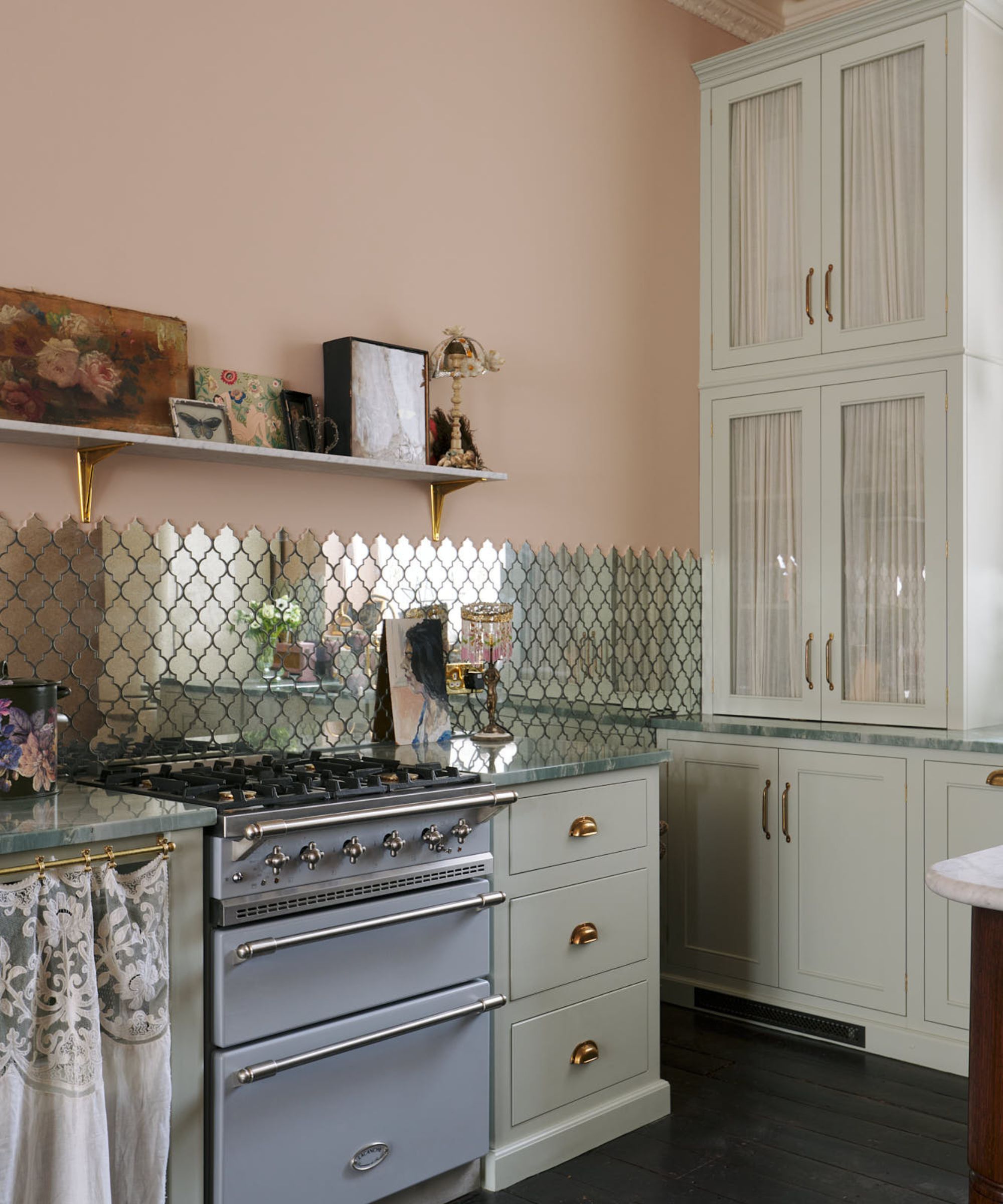
Shantae Duckworth, home organizer and founder of Shantaeize Your Space explains, ‘I totally understand why people turn to the oven for extra storage, especially for small kitchen ideas. But truthfully, storing items in your oven is a habit that can backfire quickly – sometimes literally! Storing things in your oven is a common fire risk in your home. Even if you think you’ll remember to take things out before turning the oven on, accidents happen. I've seen everything from scorched baking sheets to melted plastic, none of which is fun to clean or safe to breathe in.’
Laura Pensiero, renowned chef, nutritionist, culinary consultant, and registered dietitian based in New York adds, ‘Even "oven-safe" items may pose risks if forgotten – they can warp, melt, or release harmful fumes when exposed to high heat. These items, especially plastic or non-heat-resistant tools, can melt and fuse to oven surfaces, causing permanent damage and messy cleanups. Furthermore, nonstick cookware may lose its protective coating or warp, particularly when stacked or exposed to unexpected heat.
‘It leads to more headaches than it's worth.'
2. You risk damaging items
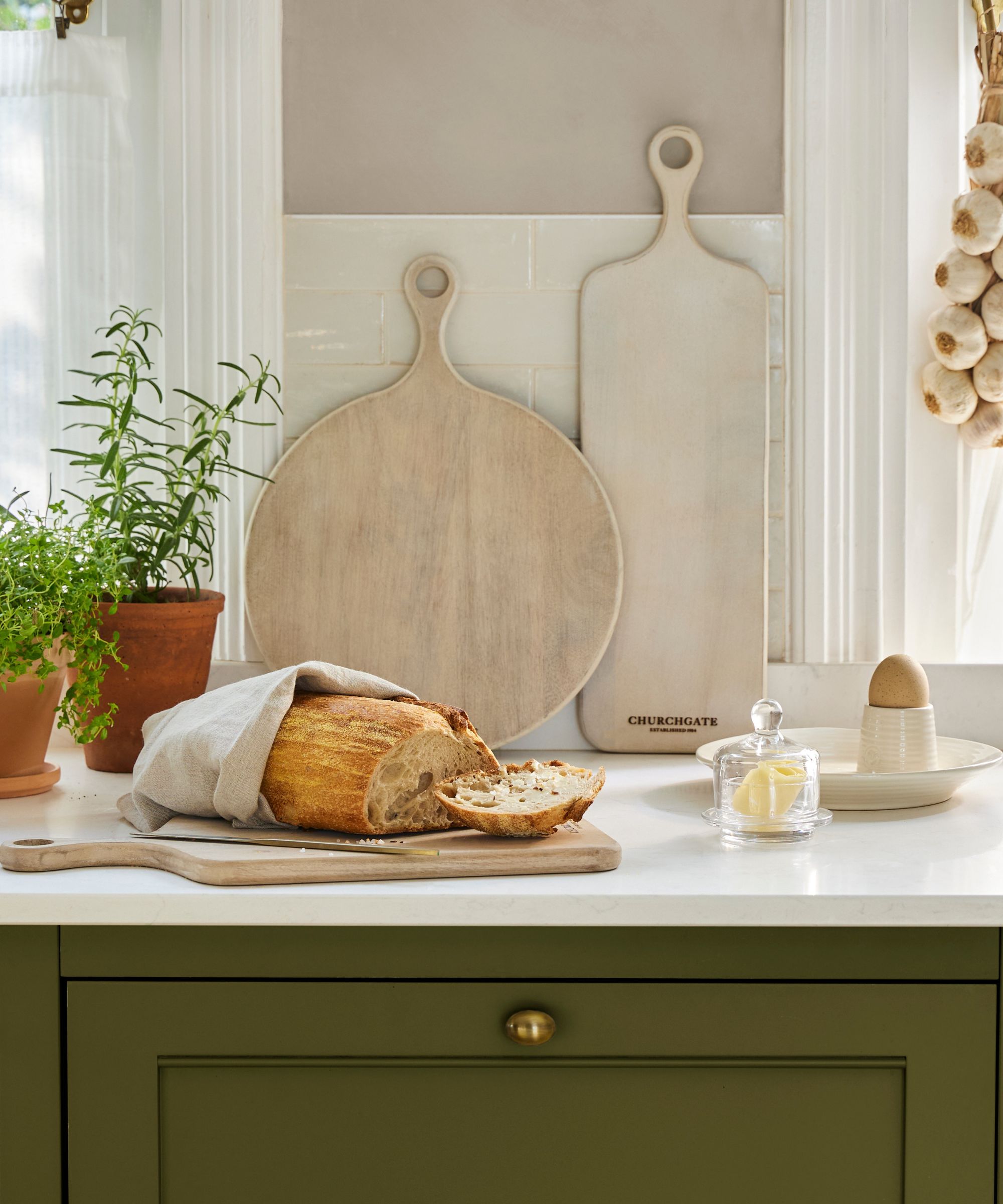
Even if you do remember to take items out of your oven when it is in use, putting items back in too soon can cause just as much damage, adds Kyle Taylor, founder and chef at HE COOKS.
He explains, ‘Even when the oven is off, residual heat from the use of the stovetop can warp or destroy whatever's inside the oven such as plastic containers, handles, pans, etc. For these risks alone, it's not smart to use the oven as storage.’
Even when you are not using your oven for storage, we recommend switching to non-plastic tools, such as this complete set of metal cooking utensils from Walmart, and wooding cutting boards, available in sets of three from Target, to limit microplastic contamination when cooking.
3. It makes cooking a hassle
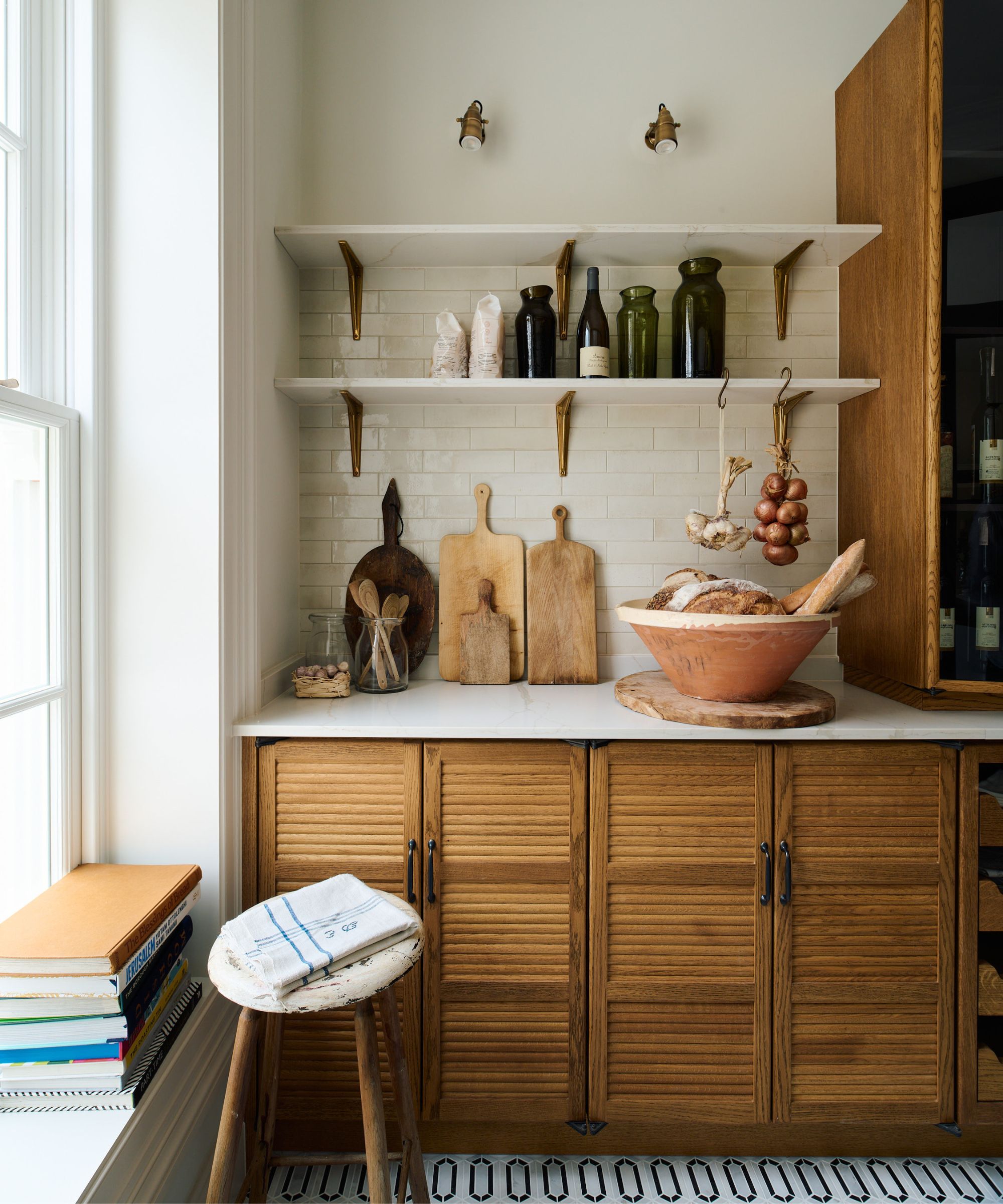
When organizing a kitchen, your goal should be to make cooking simpler, so that mid-week meals are hassle-free when you are tired. Adding the step of having to empty out the oven can be exhausting, and prove a barrier to making nutritious homemade meals.
Shantae shares, ‘Every time you want to preheat the oven, you have to remember what’s inside, take it all out, find counter space to store it temporarily, and then repeat the process when you’re done. It adds unnecessary friction to your day and makes cooking feel like a chore rather than something joyful or functional.’
4. It can be unsanitary
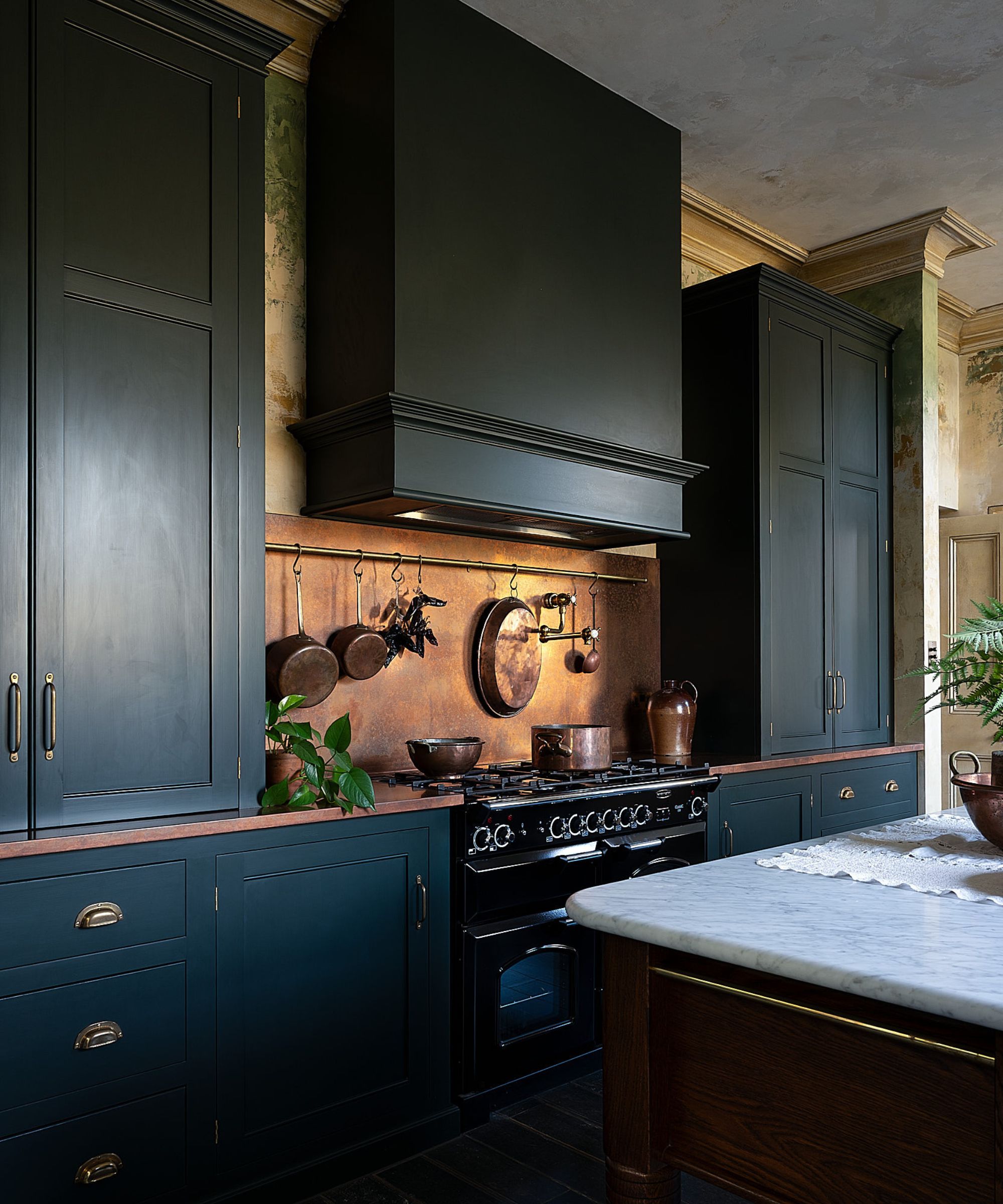
Even if you clean a kitchen after dinner each night and regularly clean an oven, taking things in and out of your oven constantly can lead to cross-contamination, Shantae warns.
She says, ‘It can be unsanitary over time. Ovens aren’t meant to be airtight storage spots, and storing things like pans, muffin tins, or even cutting boards in there can lead to a build-up of grime, grease, or even pests if your oven isn’t used often.’
To prevent dirt buildup and kill bacteria, I like to clean an oven without chemicals, using either Homes & Garden's best steam cleaner (the Black & Decker 7-in-1 steam mop available at Amazon), or by cleaning with vinegar, using the Great Value White Vinegar from Walmart.
What to do instead of using an oven for storage
While it can be hard to find extra storage in a small space, Laura urges you to try using vertical storage to save space where you can. She shares, ‘While it might free up a cabinet or two, the oven isn’t designed for storage. More practical and safer solutions include wall-mounted racks, drawer organizers, or rolling carts.’
Shantae agrees, adding, ‘I always encourage people to rethink vertical storage – installing racks, hanging organizers inside cabinets, or using the space above the fridge more intentionally. Even a small rolling cart or a repurposed bookshelf can hold pans and trays more safely and accessibly than the oven ever could.’
Be sure to check the items to never store on top of a refrigerator, however, to avoid damage and spoilage.
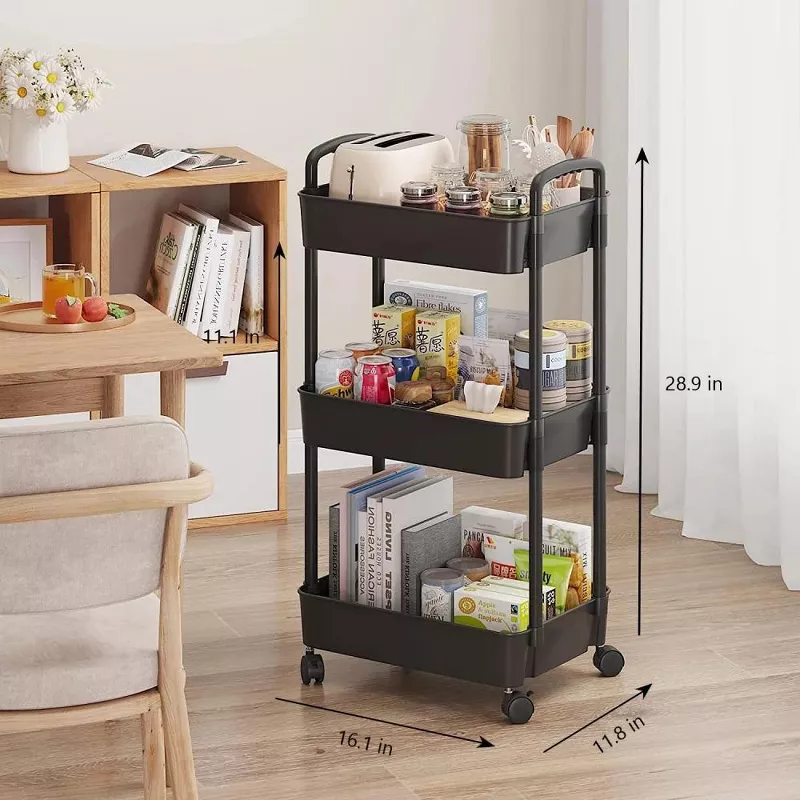
Perfect for storing pans, trays, and dry food goods, rolling carts are ideal for awkward spaces, preventing storage from getting in the way.
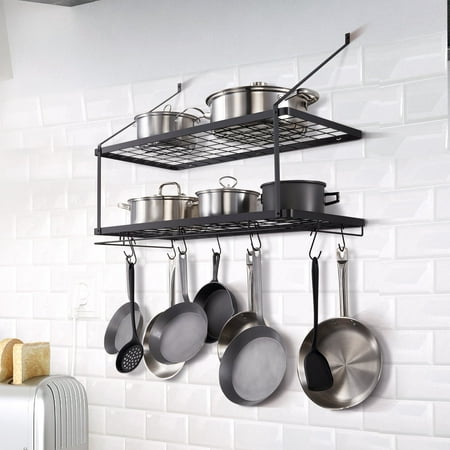
Going up onto the walls is one of the best ways to add non-invasive storage to your kitchen. Just be sure to dust regularly to keep pots and pans sanitary.
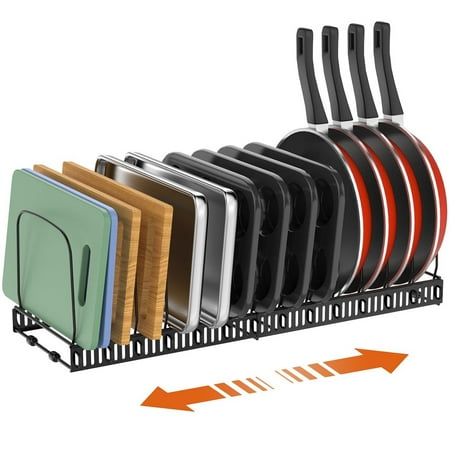
Avoid having to sift though a mountain of boards and trays for the right one by stacking them neatly in this divider for kitchen cabinets. It can also sit on top of the fridge for quick access.
Meet the experts
There is one tiny exception to this rule if you really have nowhere else to store items, Laura concludes. ‘If you rarely use your oven for cooking, storing heat-tolerant items like cast iron pans or pizza stones may be okay – but only with extra care and a solid system to avoid accidents.’ Overall, however, it is far better to try the things people with organized kitchen cabinets always do to make space and avoid the oven.







